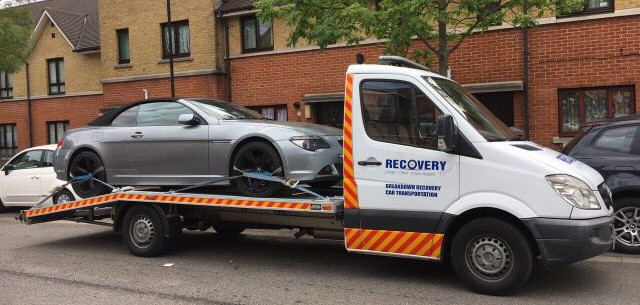5 Steps to Starting a Vehicle Recovery Service

With hundreds of cars breaking down every day, vehicle recovery is a service that is in demand no matter where you are. Recovery services are needed in several different situations, whether it’s to rescue a driver who has broken down at the side of the road, clear a car that has been involved in a collision from the road, or towing cars that have been parked illegally or where the owner has not kept up with payments. A recovery business is something that you can start on your own with just one suitable recovery vehicle. If this is a career move that you’re considering, here are the initial steps you’ll need to take.
Business Plan
Whenever you want to start a business, drafting a business plan should be the first step that you take. Make sure that you include any start-up costs, ongoing expenses, licenses, insurances, and more that you are going to need to successfully start and run your business. The recovery truck will be the biggest item on your list, so it is important to make sure you include recovery truck insurance to protect your investment from day 1 of your recovery business.
Equipment
You’ll need a range of equipment in order to start your own recovery business. A tow truck is going to be the first essential piece of equipment to get, but you’ll also need further items like cones, floodlights, tools, lightbars, and more. If you are offering a roadside repair service for your clients where this is possible, you will also need to invest in a range of mechanical tools like jump leads, jacks, and more. You’ll also need to find a secure garage where you can keep your vehicle and equipment; you can opt to either buy premises or rent a secure lockup. You may also require at least one employee to manage and look after your premises.
Safety Rules
In order to ensure that your business is run safely and legally, you will need to follow the guidelines set out by the Driver and Vehicle Standards Agency (DVSA). You will need to consider a range of guidelines and rules involving operator licensing, record keeping, working time rules, driver’s hours, tachographs and more. This online guide can be very helpful for getting to know more about this aspect of your business.
Insurance
You’ll need recovery truck insurance for any trucks you use for your business, and although they aren’t mandatory it would be a good idea to consider taking out public liability insurance and professional indemnity insurance too.
Promoting Your Business
Once you have everything set up, it’s time to promote your business in the local area. You can do this offline by providing flyers and business cards to car dealerships and garages. However, the best way to get your business known locally is by going online. Set up a website where customers can find out more about what you offer and be active on local social media community pages and groups.
If you enjoy working with cars and want to start a business that’s always in demand, there are plenty of reasons to consider starting a recovery service.




